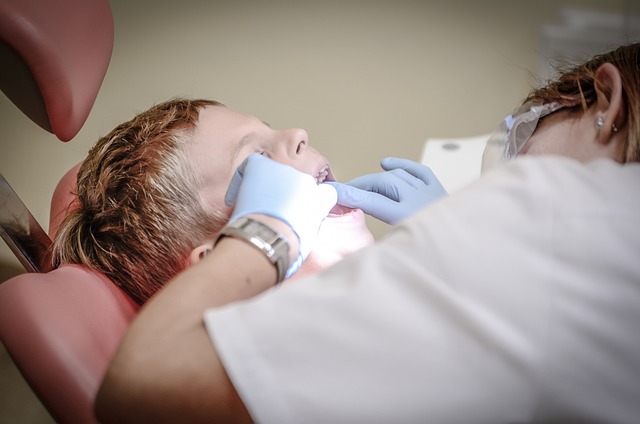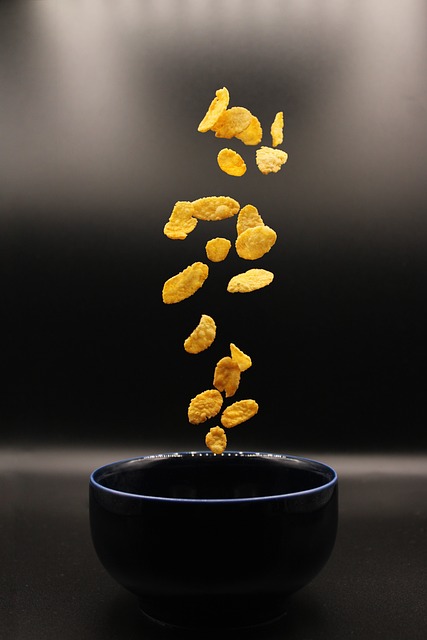Do you have veneers and aren’t sure when it’s time to replace them? This article has the answers you need for proper dental maintenance!
1. Understanding Veneers: An Overview of Dental Aesthetics
Veneers are a popular dental treatment used to enhance the appearance of teeth and create a beautiful smile. They are thin, custom-made shells that are bonded to the front surface of your teeth, effectively covering up imperfections and giving you a flawless smile. Understanding veneers is an essential step towards achieving your desired dental aesthetics. Here, we provide you with an overview of this transformative dental procedure.
Veneers can address a variety of dental concerns including discoloration, chips, cracks, and even crooked teeth. Made from high-quality porcelain, veneers are durable and can last for many years with proper care. Their natural appearance is achieved through a shade that matches the color of your surrounding teeth, making them virtually indistinguishable.
- Porcelain veneers are effective at altering the size, shape, and length of teeth.
- They are stain-resistant, providing you with a long-lasting solution to tooth discoloration.
- Veneers are custom-made to ensure a perfect fit for your teeth, giving you a comfortable and natural-looking result.
Overall, veneers offer a quick and minimally invasive way to transform your smile. With their ability to correct a range of dental imperfections, veneers have become a go-to treatment for those seeking dental aesthetics that go beyond teeth whitening or orthodontics. Consulting with a qualified dentist will help determine if veneers are the right option for you, based on your individual dental needs and goals.
2. Factors Influencing Veneer Longevity: Key Considerations
When it comes to the longevity of veneers, several factors play a critical role in ensuring their durability and maintaining their aesthetic appeal. By understanding the key considerations, you can make informed decisions and take proper care to ensure the longevity of your veneers:
- Oral hygiene: Maintaining good oral hygiene practices is crucial for the longevity of veneers. By brushing your teeth at least twice a day, flossing daily, and using mouthwash, you can prevent plaque buildup and potential decay that might affect the lifespan of your veneers.
- Nutrition: A balanced diet that includes essential nutrients is not only essential for overall health but also contributes to the longevity of veneers. Foods rich in calcium, vitamin D, and antioxidants promote strong teeth and gums, reducing the risk of issues that could impact the veneers.
- Teeth grinding: Habitual teeth grinding or clenching, known as bruxism, can exert excessive pressure on your veneers, leading to their damage or premature wear. If you suffer from bruxism, your dentist may recommend a nightguard to protect your veneers while you sleep.
Moreover, it is important to schedule regular visits to your dentist for professional cleanings and check-ups. Professional cleanings help remove any stubborn plaque or tartar buildup that cannot be easily eliminated at home, while check-ups allow the dentist to detect any potential issues early on and address them before they become significant concerns for the longevity of your veneers.
3. Signs and Symptoms: Recognizing When Veneers Need Replacement
Over time, veneers may show signs of wear and tear. It’s essential to recognize these signs and symptoms to determine when veneer replacement is necessary. Here are some key indicators to watch out for:
-
- Discoloration: If your veneers have started to appear yellow or stained, it may be a sign that the bonding material is deteriorating or that you need a professional cleaning.
- Chips or cracks: Veneers are durable, but they can still chip or crack due to various factors like trauma or biting on hard objects. Any noticeable damage should be assessed by your dentist to determine if replacement is needed.
- Sensitivity: Increased sensitivity to hot or cold substances could indicate that the protective layer of your veneers has eroded or that they are no longer adequately bonded to your teeth.
- Uneven edges: Over time, veneers can develop irregular or rough edges. This can not only affect your smile’s aesthetics but also lead to discomfort or irritation in your mouth.
If you notice any of these signs or symptoms, it is crucial to schedule an appointment with your dentist. They will assess the condition of your veneers and determine the best course of action, which may involve replacing one or more veneers to restore both the appearance and functionality of your smile. Remember that prompt replacement can help prevent further damage and maintain the longevity of your veneers.
4. Dental Maintenance 101: Best Practices for Prolonging Veneer Lifespan
Proper dental maintenance is essential for prolonging the lifespan of your veneers and keeping your smile looking its best. Here are some best practices to follow:
-
- Brush and floss regularly: Maintaining a consistent oral hygiene routine is crucial for the longevity of your veneers. Brush your teeth at least twice a day using a soft-bristled toothbrush and fluoride toothpaste. Be gentle and avoid using excessive force to prevent damaging the veneers. Additionally, floss your teeth carefully to remove plaque and food particles that can accumulate between your teeth and around the veneers.
- Avoid excessive force: While veneers are durable, they are not indestructible. Avoid habits such as biting your nails, chewing ice, or using your teeth as tools to prevent chipping or breaking the veneers. If you participate in contact sports or grind your teeth at night, consider wearing a mouthguard to protect your veneers from potential damage.
- Limit staining foods and drinks: Certain foods and beverages can cause staining and discoloration of your veneers over time. Limit your consumption of staining culprits such as coffee, tea, red wine, and dark berries. If you do indulge in these foods or drinks, rinse your mouth with water afterward to minimize any potential staining.
By following these dental maintenance best practices, you can ensure the longevity of your veneers and maintain a beautiful smile for years to come. Remember to schedule regular dental check-ups, as your dentist can detect any issues early on and provide appropriate care.
5. Routine Dental Check-ups: A Crucial Step in Maintaining Veneer Integrity
Regular dental check-ups are an essential component in ensuring the long-lasting integrity of your dental veneers. By scheduling routine appointments, you can stay on top of any potential issues that may compromise the quality and appearance of your veneers. Here are a few reasons why routine check-ups play a crucial role in maintaining the integrity of your veneers:
1. Early detection of problems: During your dental check-up, your dentist will thoroughly examine your veneers for any signs of wear, cracking, or discoloration. Detecting these issues early on allows your dentist to address them promptly, preventing further damage and the need for extensive repairs or replacements.
2. Professional cleaning: Dental check-ups also involve a thorough cleaning of your veneers, removing any plaque or tartar buildup that may have accumulated. This professional cleaning helps to maintain the luster and shine of your veneers, ensuring that they retain their natural beauty for years to come.
3. Oral hygiene guidance: Dentists can provide invaluable guidance on proper oral hygiene practices specific to your veneers. They can recommend suitable toothpaste and oral care products to use, as well as offer tips on brushing and flossing techniques that will keep your veneers in optimal condition.
4. Bite alignment assessment: Regular check-ups allow your dentist to assess your bite alignment and make any necessary adjustments. An improper bite can put excessive pressure on your veneers, leading to chipping or cracking. By ensuring proper alignment, you can avoid such issues and prolong the lifespan of your veneers.
5. Overall oral health examination: Dental check-ups involve a comprehensive examination of your overall oral health, not just your veneers. Your dentist will assess the health of your gums, teeth, and jaw, allowing them to spot any potential problems that may indirectly affect your veneers.
By prioritizing When it comes to the lifespan of dental veneers, there is no one-size-fits-all answer. The ideal replacement frequency for veneers can vary depending on several factors. It is essential to consider these factors to determine if it’s time for a change: 1. Quality of the Veneers: The materials used and the craftsmanship of the veneers can greatly affect their durability. High-quality veneers made from porcelain or composite resin tend to last longer and require less frequent replacement compared to lower-quality alternatives. 2. Oral Hygiene Practices: Maintaining excellent oral hygiene is crucial in prolonging the lifespan of veneers. Regular brushing, flossing, and dental cleanings can help prevent problems such as decay or gum disease that may necessitate replacing the veneers. 3. Bite Misalignment: If you have an uneven bite or grind your teeth, it can put excessive pressure on your veneers, leading to wear and damage over time. Treating bite issues and using a nightguard can help protect your veneers and extend their durability. 4. Aging and Wear: Veneers, like natural teeth, are subject to wear and tear over time. Daily habits such as teeth grinding, consuming stain-inducing foods, or using tobacco products can affect their longevity. Regular dental check-ups can help assess the condition of your veneers and determine if they need replacement. 5. Cosmetic Preferences: Additionally, your personal cosmetic preferences may also play a role in deciding when to replace veneers. As aesthetic standards change and your smile expectations evolve, you may desire a fresh set of veneers to achieve the desired appearance. Veneers are a great way to enhance your smile and improve the appearance of your teeth. However, it is important to take preventive measures to minimize wear and tear on your veneers and prolong their lifespan. By following these simple tips, you can keep your veneers looking their best: By implementing these preventive measures, you can ensure the longevity and durability of your veneers. Regular visits to your dentist for professional cleanings and check-ups can also help identify any potential issues early on. Remember, taking care of your veneers is essential for maintaining a beautiful and confident smile. Proper care for veneers is crucial to ensure their longevity and maintain their natural appearance. Here are some essential dental hygiene tips to help you take care of your veneers: Additionally, it is recommended to follow these extra tips for proper veneer care: Replacing veneers is an important decision that should always be consulted with your dentist. With their professional expertise, dentists can guide you through the process and help you make the right choices for your dental health. Here are a few reasons why consulting your dentist on veneer replacement is essential: 1. Assessment of existing veneers: Your dentist will thoroughly examine the condition of your current veneers to determine if replacement is necessary. They will check for any signs of damage, such as cracks, chips, or discoloration, and assess the overall integrity of the veneers. This assessment will ensure that any underlying issues are addressed before new veneers are placed. 2. Recommendation of suitable materials: Dentists have extensive knowledge about the various materials used for veneers, such as porcelain or composite resin. Based on your specific needs and preferences, they can recommend the most suitable material that will provide optimal durability and aesthetics. By taking into account factors like tooth strength, color match, and longevity, your dentist will help you choose the best option for your new veneers. In order to ensure the longevity of veneers, certain factors need to be taken into consideration. These factors can greatly influence the lifespan of veneers and determine how long they will last. 1. Dental hygiene: Good oral hygiene practices, such as regular brushing and flossing, play a vital role in maintaining the longevity of veneers. Brushing at least twice a day with a soft-bristled toothbrush and using non-abrasive toothpaste is recommended. Flossing should be done at least once a day to remove plaque and prevent gum disease. 2. Diet: The foods we consume can impact the lifespan of veneers. It is important to avoid biting or chewing on hard objects such as ice, pens, or nails, as this can cause damage to the veneers. Additionally, reducing the intake of staining substances like coffee, tea, and red wine can help preserve the color and appearance of veneers over time. In conclusion, maintaining regular dental check-ups and proper oral hygiene are essential for extending the lifespan of veneers. Remember, replacing veneers may vary depending on individual circumstances, but on average, they can last anywhere from 10 to 20 years. Listen to your dentist’s guidance and practice good dental care to enjoy your beautiful smile for many years to come. 7. Preventive Measures: Minimizing Wear and Tear on Your Veneers
8. Dental Hygiene Tips: Proper Care for Veneers to Ensure Longevity






